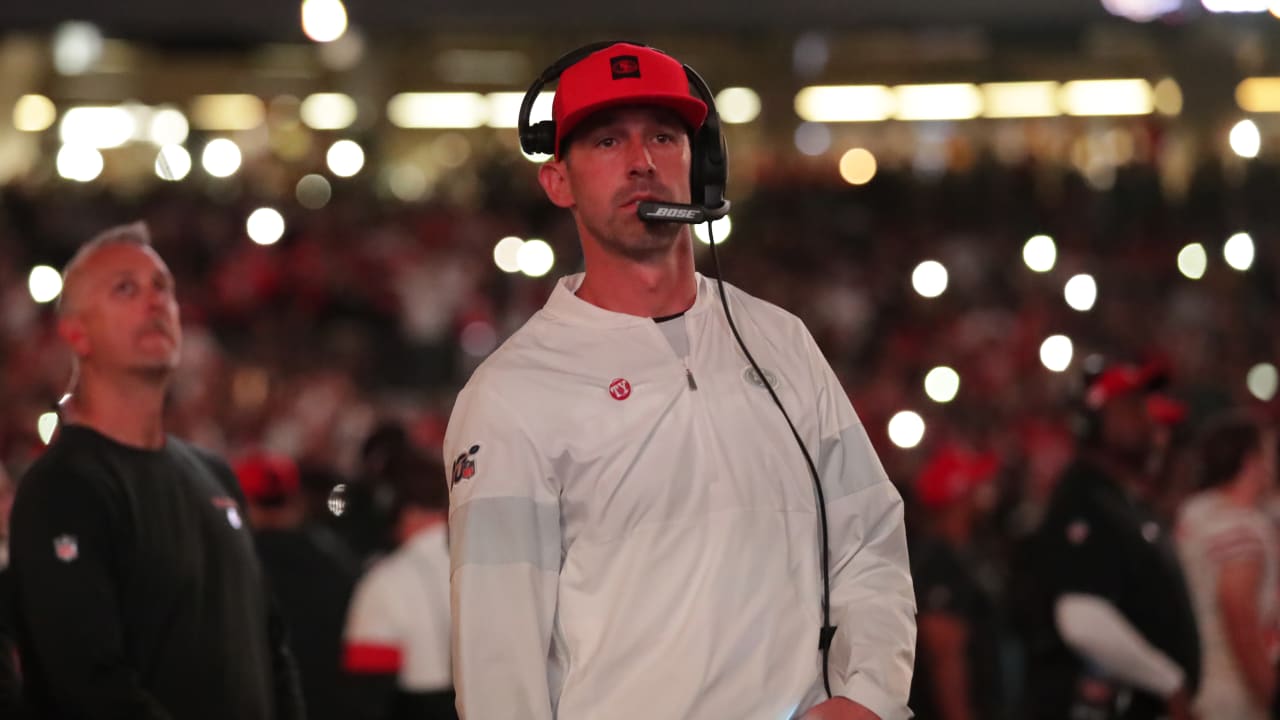Sourdough Sam
Well-known member
- Mar 20, 2019
- 1,637
- 0

While teams are continuing their offseason programs virtually, head coach Kyle Shanahan has made it a point to address the social issues head on with 49ers players and coaching staff. Players have acknowledged the head coach joining in on several positional meetings to check in and keep things "light" with his team. But as of late, the lively exchanges have sobered and the need for honest and sincere conversations have persisted in the midst of the nation's current events.
Following the response to the murder of George Floyd, Shanahan has led several meetings with players to remove one another of their respective positions and titles to allow open discussions to help aid the uncomfortable conversations at hand. On Thursday, Shanahan spoke passionately and openly with the media on why the discussions are necessary to have among the 49ers locker room and in the community to begin moving forward.
"People are hurting," Shanahan said. "Black people mainly are scared. And the disturbing thing is they've been scared for a long time. And this is their cry for help that they've been giving for a long time and people don't totally listen. I think everyone's at fault for that. I'm not saying black people are because they're the ones who have been screaming. I think everyone's at fault for not totally listening. And I think one thing that bothers me the most just throughout this and throughout my own life experiences and stuff, (is that) racism is a big deal in our country right now. That's a fact. That's not debatable. It's always been a big deal. And it is today just like it was 100 years ago. And I think something, just as a white person that bothers me, (is that) I don't think all white people realize that.
"(Racism's) happened too long and it's very clear. I don't want to debate it anymore. No one does. Open your eyes."
As the son of a former NFL head coach, Shanahan spent much of his youth moving around from city to city following his father, Mike. Through his upbringing and past experiences, Shanahan credits the different environments to his general understanding of inequality and the need for immediate change.
"I moved everywhere in my life," Shanahan explained. "Never lived anywhere longer than four years, so I've been all over this country and I've had all types of friends. One thing I can tell you that is consistent, some of my black friends – some of the toughest guys I have been around, just awesome dudes, but I've never seen them scared of anything. And I can't tell you how many times I'm with one of my black friends and we're around a cop. And I can feel something different than those guys. They're scared, and it's something that has always bothered me. And I've been in some situations worse than others, but regardless, I don't know how they feel, but I can feel that they feel different than me."
Shanahan along with general manager John Lynch have met with roughly a dozen veteran players to continue the conversation and determine collective steps of action 49ers players and coaches can take. While Floyd's murder may have just been the tipping point for many fighting against social inequality, Shanahan hopes the unity within the 49ers locker room can be a starting point in creating direct action.
"What I hear the most with the players, which I believe in a ton too, is what we can do for the youth and setting examples. If all kids could watch how our players interact with each other, that's how all people should interact with each other," Shanahan said. "I feel very fortunate that I've been around these situations because in a football locker room, since I was born, you're around everybody and it makes it a lot easier and it makes it comfortable. …I think our guys are all going to do it in some different ways. We'd like to do something collectively as a team and that's something we're still discussing. But the main thing is, is how do you do it now? How do you do it a week from now? And how do you do it every day of your life? I think everyone has to do that somewhat individually and people have to be aware. They have to admit what's wrong. They have to talk. We have to break through whatever the awkwardness that's between races because that's not there with everybody, but it's there with way too many people. I know our players are so passionate - black guys and white guys, about trying to fix this."
